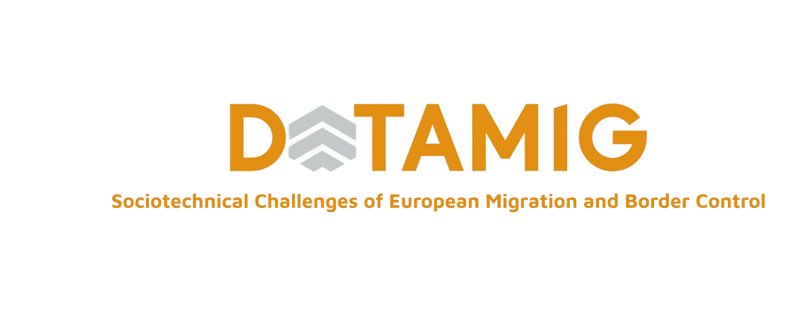Data Matters: Sociotechnical Challenges of European Migration and Border Control (DATAMIG) Cost Action 22135
Annual Workshop
National and Kapodistrian University of Athens 25-26 June 2024 Call for Participants Working Group 2: Observatory
In 2023, the European Cooperation in Science & Technology (COST) approved funding for the research network “Data Matters: Sociotechnical Challenges of European Migration and Border Control” (DATAMIG), which aims to facilitate an international network of researchers, deepen international collaboration, and foster knowledge across disciplines and stakeholders. As part of DATAMIG, the interdisciplinary Working Group 2 (WG2) Observatory invites expressions of interest to participate in its Annual Workshop. WG2 is focused on mapping, monitoring and visualising technologies across migration and border control regimes. We welcome contributions that critically discuss the increasing uses of digital technologies in border and migration control (datafication) and the implications for privacy and human rights from different angles and interdisciplinary perspectives (including, among others, history of technology, legal studies, sociology, science and technology studies, anthropology, geography, international relations, feminist, and postcolonial studies).
We want to promote slow scholarship and the participation of a wide range of actors from within and outside of academic institutions, with experiences and expertise in research, practice and advocacy. We welcome contributions from activist networks, non- governmental organisations, people on the move, experts by experience, investigative journalists, artists and photographers, and scholars from all career stages and backgrounds.
While the focus of DATAMIG is Migration and Border Control in Europe, we are aware that many of the technologies deployed on the European continent and the Global North are being developed and tested elsewhere. As such, we invite contributions that, among other dimensions, explore transnational and neocolonial aspects of datafication. The aim of the Workshop is to consolidate and develop research in this area by extending current debates on datafication of borders and migration control. We are interested in particular in hearing from individuals and groups who can substantively and critically contribute to discussions of:
- Technologies used across aid and humanitarian intervention
- Mapping current practices of border control through ‘glitches’ and ‘errors’ in border technologies.
- Practices of counter-bordering, counter-surveillance, sousveillance and multiveillance.
- Bordering practices beyond states’ border Political economy of datafication of borders,
- Digitalisation of immigration and asylum applications Intersections of infrastructures of healthcare and border control
- Use of biometric identification technology in border and migration control
- The role of international organizations in datafication, for example the role of the International Organization of Migration (IOM)
- The participation of private actors and expertise in bordering processes
- The political economy of transnational migration and borders
- Privacy and the right to opacity
- Critical Data Studies, Al Situational Mapping and STS theory methods packages



